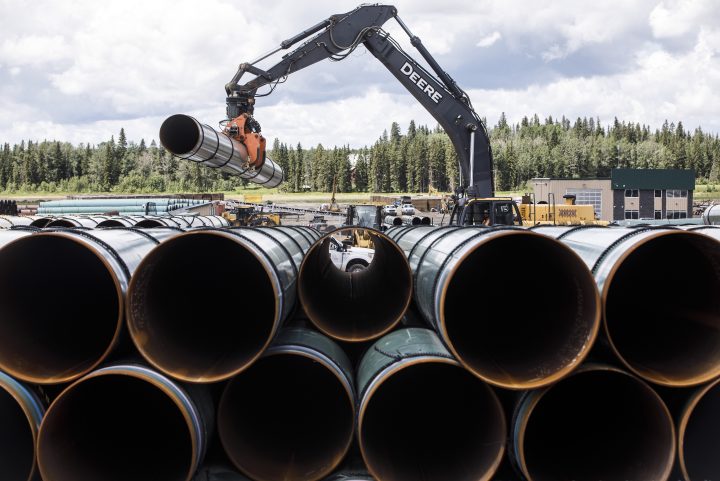For all the bitter back-and-forth again this week between the Liberals and Conservatives over the Trans Mountain pipeline expansion (TMX), it’s easy to lose sight of that fact that both parties are on the same side of the issue.

Sure, there’s plenty of finger-pointing about the delays affecting TMX or the broader polarization around pipelines, but the Liberals and Conservatives both support this project.
And they’re not alone.
A new poll out this week confirms yet again that a solid majority of Canadians support TMX. Nationally, 56 per cent of Canadians support the government’s decision to once again approve the project, which happens to be the same number of respondents in B.C. who concur with the decision. In fact, there is majority support in every region of the country except for Quebec — and even there, opposition to the TMX decision is only 40 per cent. (While 31 per cent in Quebec support the pipeline, 29 per cent are not sure or can’t say what their view is.)
Given that, it’s perhaps no surprise that the Trudeau government decided to once again back the project. And certainly the record shows that it has supported it all the way through from the original approval in November 2016, including decisions made along the way to purchase the project after Kinder Morgan walked away and to meet the conditions in the Federal Court of Appeal ruling.
Given the solid public support for TMX — in addition to the obvious economic benefits — it’s hard to believe the more conspiratorial view that the Liberals have a secret plan to not follow through on the project. I’m not sure how angering both sides of this debate yields any sort of political benefit. So I would fully expect that whether October brings us a Liberal or a Conservative government, Ottawa’s commitment to TMX will remain.
WATCH: Global News coverage of the Trans Mountain pipeline extension
However, that commitment to TMX does not guarantee that TMX will actually be completed. And that’s not necessarily calling into question the Liberal commitment here; a Conservative win in October is no guarantee, either.
But there’s no reason why this pipeline shouldn’t be built. The public support is there, the political will is there, the economic case is there, the constitutional obligations have been fulfilled, and the opportunity for significant First Nations investment in the project is now very real.
- What is a halal mortgage? How interest-free home financing works in Canada
- Capital gains changes are ‘really fair,’ Freeland says, as doctors cry foul
- Budget 2024 failed to spark ‘political reboot’ for Liberals, polling suggests
- Peel police chief met Sri Lankan officer a court says ‘participated’ in torture
If, despite all of that, we cannot get this project completed — a project that, by the way, is the expansion of an existing pipeline — then something really is broken in this country. Certainly, many others have already reached that conclusion, given the delays on TMX and a dearth of any other proposed projects, not to mention the investor uncertainty that all of this has created. But I would still argue that it’s premature to reach such a conclusion.
If TMX fails, however, it will no longer be possible to deny those pessimists’ pronouncements. That’s what makes the stakes so high on this. It would also further inflame an already volatile national unity situation.
Conversely, though, the construction and completion of TMX would send a powerful signal, one that would create benefits beyond those directly associated with the project itself. Whether those benefits are sufficient enough to offset the potential negative consequences of Bill C-48 and (the amended) Bill C-69 remains to be seen.
The Liberals seem to have banked on a strategy of getting TMX completed and then not having to approve any more pipelines after that. In a best-case scenario, a completed TMX, Keystone XL, and Line 3 would take care of our capacity needs for at least the next decade. However, that’s not an excuse for unnecessary legislation that would further discourage future projects.
So C-69 and C-48 represent a real and meaningful policy distinction between the Liberals and Conservatives and both parties should explain and defend their competing visions on these fronts. It certainly represents more relevant questions for voters to consider than a pipeline project on which the two parties agree.
That’s not to say that the parties should avoid TMX. Certainly, the NDP and the Greens, both of whom oppose TMX, will have much to say on the matter. Proponents need to keep emphasizing the benefits of the project and why the case for it is so strong. The dire consequences of its failure must be noted, as well.
Rob Breakenridge is host of “Afternoons with Rob Breakenridge” on Global News Radio 770 Calgary and a commentator for Global News.













Comments